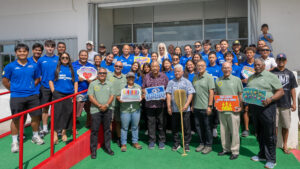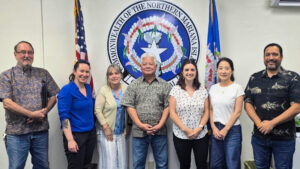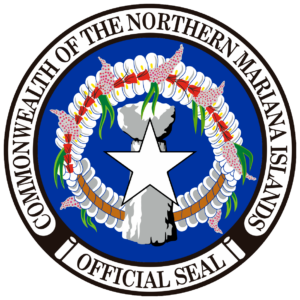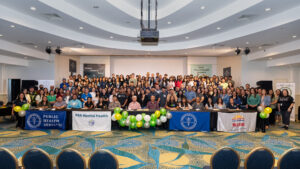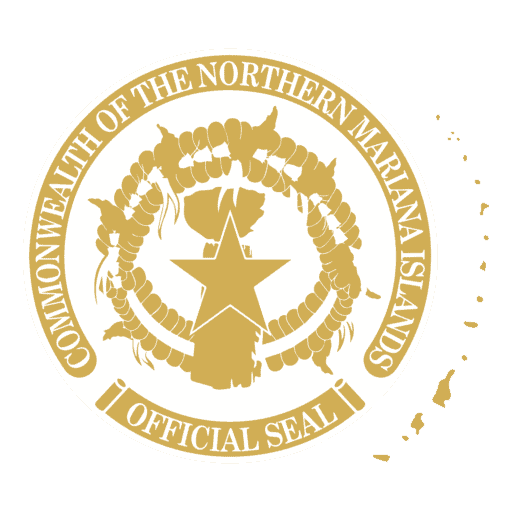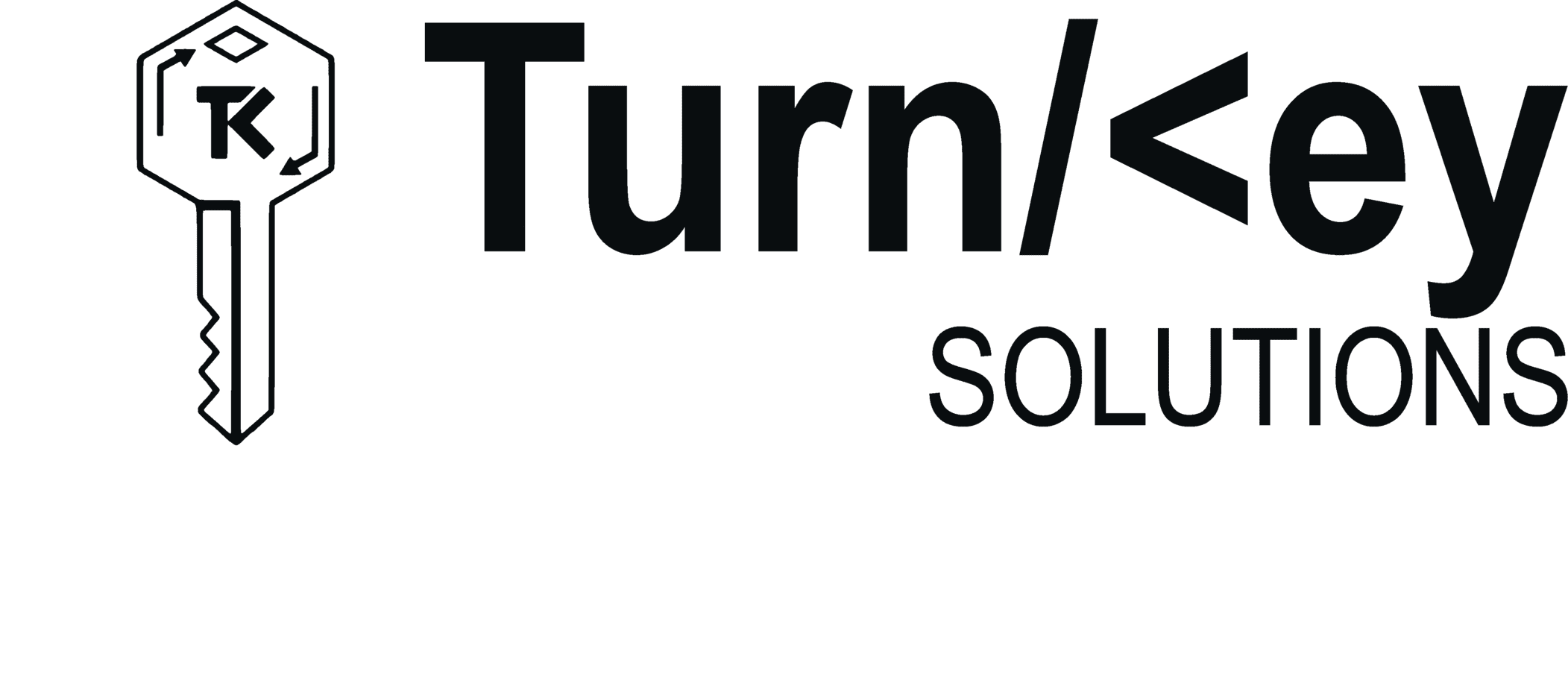The Governor’s COVID-19 Task Force and the Commonwealth Healthcare Corporation (CHCC) announced on Wednesday that a sailor deployed to Tinian from Guam as part of a team of the Naval Mobile Construction Battalion (Seabees) supporting a survey for the Tinian port construction project tested positive for COVID-19 on Tuesday, September 1, 2020.
This brings the CNMI’s total case count to 57 cases since March 28, 2020.
The individual was identified by travel screening and confirmed diagnosis through testing on arrivalprotocols set forth by the COVID-19 Task Force and CHCC.
Navy officials have coordinated with Task Force officials to safely transport the confirmed individual and other identified known contacts from Tinian to Saipan.
The identified sailor, confirmed COVID-19 positive, has been placed into isolation, while the remainder of the team and two additional sailors identified as close contacts were placed into quarantine at the designated government quarantine facility at the Kanoa Resort for close monitoring.
“In partnership with Joint Region Marianas, our COVID-19 Task Force, CHCC, and Mayor of Tinian Edwin P. Aldan, the CNMI was able to quickly identify the sailor and all identified close contacts and placed them in isolation away from our community. Protection of all of our islands from COVID-19 is our collective goal, and we will continue to do what is necessary to protect our community,” said Governor Ralph DLG. Torres.
Before traveling to Tinian via military aircraft, the Department of Defense (DoD) informed the CNMI Government that the entire deployed Seabee team remained in a restriction of movement sequester for greater than 14 days onboard U.S. Naval Base Guam and that all tested negative for COVID-19.
“Although testing negative, the test is only for a single point of time. Those who are asymptomatic, as in this instance, the virus may have been incubating, but not at a detectable level. Due to the nature of this evolving virus, the CNMI is aggressive in our testing to reduce the possibility of community transmission. Additionally, this underscores the value of adherence to local protocols for arrival screening which have served CNMI well for border protection, along with the investment the CHCC and the COVID-19 Task Force has made to ensure quality and timely laboratory testing is available on island,” said CHCC Chief Executive Officer Esther L. Muña.
The Governor’s COVID-19 Task Force and CHCC have coordinated with Navy public health officials for contact tracing efforts to keep the CNMI safe.
Practice the 3 W’s – Wash your hands. Watch your distance. Wear a face covering.
● Wash your hands for at least 20 seconds with soap and water, avoid touching your face, cover coughs and sneezes with a tissue or your sleeve.
● Use an alcohol-based hand sanitizer if soap and water are not readily available.
● Practice social distancing, which means avoiding close contact with people in order to avoid catching the virus yourself and to avoid passing it on to others.
● The more people an individual interacts with at a gathering and the longer that interaction lasts, the higher the potential risk of becoming infected with COVID-19 and COVID-19 spreading.(https://www.cdc.gov/coronavirus/2019-ncov/community/large-events/considerations-for-events-gatherings.html)
● Wear a face covering
● Be cautious when dining out and pick up food through drive-thru, take-out, or delivery options when possible.
● Only one healthy adult from the household should run necessary errands, such as getting groceries or picking up medications. Leave children, elderly, and other vulnerable people at home as much as possible. When returning home from an errand, wash your hands before doing anything else.
○ Older adults and people with chronic medical conditions are at higher risk of getting very sick from this illness. People at high risk should stay at home as much as possible.
● Create a household plan of action https://www.cdc.gov/coronavirus/2019-ncov/prepare/checklist-household-ready.html
● Ensure a 30-day supply of all medicines.
Know the signs and symptoms of COVID-19 and what to do if you become symptomatic:
● Stay home when you are sick and if you recently traveled to a place with COVID-19. Self-quarantine means:
○ Avoid or limit visiting public places. Do not visit your place of work. You may leave to get necessary medical care, food, or other supplies if no one else in your household is able to fulfill these needs for you.
○ Separate yourself from others in your home, especially if you are experiencing symptoms or if others in your home are not in quarantine. Limit visitors
■ Stay in a separate room and use a separate bathroom if possible.
■ We encourage you and people in your household to wear a face covering.
○ Wash your hands often with soap and water for at least 20 seconds. If soap and water are not available, use an alcohol-based hand sanitizer.
○ Clean and disinfect frequently touched objects and surfaces.
○ Cover your coughs/sneezes with a tissue, then throw the tissue in the trash. If there is no tissue, use your sleeve. Not your hands!
○ Practice social-distancing and wear a face-covering. If you need to go out, maintain at least 6 feet distance away from others. Avoiding touching your eyes, nose, and mouth with unwashed hands.
○ Take your temperature and keep a log of any symptoms you might have. A fever is 100.4°F or 38°C
The Governor’s COVID-19 Task Force continues to manage COVID-19 inquiries and residents
are encouraged to utilize this resource for additional information.
The Task Force hotline numbers are 237-8034, 8035, 8036, and 8037. These numbers are available every day from 7:30 am to 6:30 pm.
For mental health support and helpful tips during a crisis please call the Mental Health Support Line at 323-6560 or 323-6561 These numbers are available Monday to Friday 7:30 am – 4:30 pm. For the 24/7 Disaster Distress Helpline please call SAMSHA at 1-800-985-5990.
For more information about DIY face coverings, please visit https://www.cdc.gov/coronavirus/2019-ncov/prevent-getting-sick/cloth-face-cover.html
For more information about CHCC programs, please follow CHCC on Facebook, Instagram, Twitter at @cnmichcc, check out our website at www.chcc.gov.mp or call us at (670) 234-8950.
For more information on the Governor’s COVID-19 Task Force, visit governor.gov.mp and please follow @GovernorCNMI on Facebook, Instagram, and Twitter.
Rumor Control – Stop the Spread of Misinformation
During crises like this, oftentimes the spread of misinformation is just as dangerous as the virus itself. The CNMI is reminded to only share official and verified notices, press releases, and advisories from the Governor’s COVID-19 Task Force and CHCC.
CHCC Point of Contact:
Lee Tenorio
(670) 234-8950 Ext. 3445
Governor’s COVID-19 Task Force Point of Contact:
Kevin Bautista
For more information about CHCC programs, please follow us on Facebook, Instagram, and Twitter at @cnmichcc, check out our website at www.chcc.gov.mp or call us at (670) 234-8950.
This press release may be found online at http://www.chcc.gov.mp/pressrelease.html and at www.governor.gov.mp/covid-19
# # #


